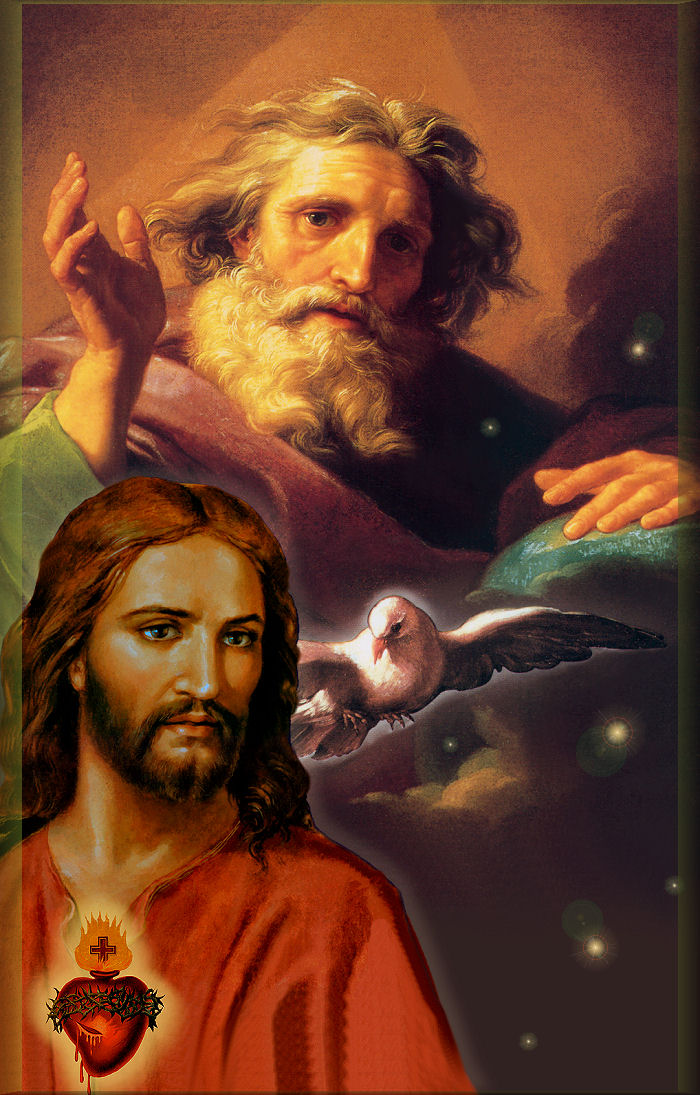  THE COMMANDMENTS Taken from THE CATECHISM EXPLAINED Written by Fr. Francis Spirago; Edited by Fr. Richard Clarke, SJ with Nihil Obstat and Imprimatur, New York, 1927  SECTION B: THE TEN COMMANDMENTS THE SECOND COMMANDMENT OF GOD The Second Commandment is this: "Thou shalt not take the name of the Lord thy God in vain;" that is to say, thou shalt not utter it without reverence. By the name of God is not meant the mere word alone, but the majesty appertaining to the Most High. We owe reverence to almighty God because He is a Lord of infinite majesty, and of infinite bounty. Reverence is a mixture of fear, love, and esteem. If it was said of a monarch that he had many millions of subjects, that he had an army of a hundred thousand warriors who could take the field at his command, that by a word from his lips he could make the happiness or misery of multitudes, you would fear that monarch. But if you were told of his goodness, his endeavors to promote the welfare of his subjects, you would love and esteem him. So will you feel towards God, if you contemplate His infinite perfections and His great love towards man. Consider the perfections of God! There are upon earth some fifteen hundred millions of human beings; each one of these God knows, preserves, guides. He hears their prayers, He helps them in their necessities; He rewards or punishes them for the most part here below. How vast is the knowledge of this supreme Being! Millions of orbs revolve in space; God has created them all, He maintains them all, He gives them all motion. How boundless is His power! Think of the unseen world alone, peopled by millions of celestial spirits; He knows each one, He preserves each one in existence, He guides and directs each one, and by each and all He is adored. How great is His majesty! "Who is like to Thee among the strong, O Lord? Who is like to Thee, glorious in holiness, terrible and praiseworthy, doing wonders?" (Exod. xv. 11.) On account of the great majesty of God we should fear Him, and should love Him by reason of His infinite goodness. Fear and love are the component parts of reverence. 1. In the Second Commandment God commands us in the first place to show due respect to His Divine majesty. This we must do in the following manner: We should frequently call upon the name of God with true and heartfelt devotion, especially at the commencement of all we do and in time of trouble. Newton, the great astronomer, had the deepest respect for the name of God; he uncovered his head and bowed low whenever it was uttered in his presence. Many devout Christians bow their head when they pronounce the name of Jesus in prayer; the priest does so in celebrating Mass. St. Ignatius, Bishop of Antioch, who when a child is said to have been he whom Our Lord set in the midst of the disciples, at the time that He said "Whosoever shall humble himself as this little child, he is the greater in the kingdom of Heaven" (Matt. xviii. 4), loved to repeat the name of Jesus; shortly before his death he said: "This name shall never leave my lips or be effaced from my heart." And, In fact, after his Martyrdom, the holy name was found inscribed on his heart. In the Litany of the Holy Name we invoke the name of Jesus again and again, because it is the most powerful of all names, and through it we can obtain all we need. "If you ask the Father anything in My name, He will give it you" (John xvi. 23). By the name of Jesus the Apostles and Saints worked miracles; St. Peter said to the lame man at the gate of the Temple: "In the name of Jesus Christ arise and walk" (Acts iii. 6). Christ promised that in His name devils should be cast out (Mark xvi. 17). The devils tremble at the name of Jesus; they take flight when they hear it, even when it is uttered by evil men, so great is its potency. The name of Jesus is also all-powerful to fill the heart with joy; it is compared to oil (Cant. i. 2); as oil gives light, alleviates pain, and affords nourishment, so does the name of Jesus, when we call upon it. St. Vincent Ferrer declares it to be a defense in all dangers spiritual and temporal, and the means of healing bodily infirmities. All graces are combined in this holy name: "There is no other name under Heaven given to men, whereby we must be saved" (Acts iv. 12). "At the name of Jesus every knee should bow, of those that are in Heaven, on earth, and under the earth" (Phil. ii. 10). An indulgence of twenty-five days is granted for each invocation of this holy name [the Church no longer grants indulgences in terms of the number of days. - The Web Master], and a plenary at the hour of death for those who have frequently invoked it during life (Clement XIII, Sept. 5, 1759). To pronounce this name is indispensable for obtaining the indulgence at the hour of death. Would that every Christian could say with St. Bernard: "The name of Jesus is honey to the taste, melody to the ear, joy to the heart." No one who clings to mortal sin can devoutly call on this name: "No man can say the Lord Jesus, but by the Holy Ghost" (1 Cor. xii. 3). In beginning every wish, before every action however insignificant, we should call on the name of God, or make the Sign of the Cross, with the usual words: "All whatsoever you do, in word or in work, do all in the name of the Lord Jesus Christ - (Col. iii. 17). Thus we shall merit the Divine blessing, and earn a reward for every action; Our Lord promises that anyone who gives to another a cup of cold water in His name shall not be unrewarded (:Mark ix. 40). We should also call upon the name of God in the time of trouble; He has said: "Call upon Me in the day of trouble, I will deliver thee and thou shalt glorify Me" (Ps. xlix. 15). In the year 1683 the Christians obtained a brilliant victory over the Turks; their battle-cry was the names of Jesus and Mary. In the hour of death above all we should breathe the name of Jesus; like St. Stephen whose last words were: "Lord Jesus, receive my spirit" (Acts vii. 58.) 2. We ought to show respect for all that appertains to Divine worship; more especially for the servants of God, for holy places, sacred things, and religious ceremonies. We ought to show respect for the ministers of God. In this Count Rudolph of Hapsburg set an excellent example. One day when out hunting he met a priest carrying the Blessed Sacrament to the sick. Instantly he dismounted, and offered his horse to the priest. And when the latter on his return, gave back the horse to the count, he would not take it, saying it must thenceforth be devoted to the service of the sanctuary. The priest predicted that good fortune and happiness would attend his career, and so it did; nine years later Rudolph was elected emperor. Our Lord bids us reverence His priests; He says: "He that despiseth you, despiseth Me" (Luke i. 16). "Touch not My anointed" (1 Par. xvi. 22). St. John Chrysostom says that the honor shown to the priest is shown to God Himself. God also requires us to show respect to holy places and things. When He appeared to Moses in the burning bush, and Moses approached somewhat near, He said to Him: "Come not nigh hither; put off the shoes from thy feet; for the place whereon thou standest is holy ground" (Exod. iii. 5). Under the Old Dispensation the people were strictly forbidden to touch the Ark of the Covenant (Numb. iv. 15). "Reverence My sanctuary" (Lev. xxvi. 2). Enter into the house of God as if you were entering into Heaven, and leave behind you all that savors of earth. "Holiness becometh Thy house, O Lord!" (Ps. xcii. 5.) We should also manifest respect for all religious services. St. Elizabeth of Hungary removed her crown from her head whenever she heard Mass. Out of respect for the Gospel we stand up when it is read, and we preserve a grave demeanor when we approach the Sacraments. 3. We ought frequently to praise and magnify almighty God on account of His infinite perfections and goodness, especially when He reveals His perfections in a special manner, or confers a benefit upon us. The three children in the fiery furnace sang a canticle of praise when God preserved them from being hurt by the flames (Dan. iii.). When Tobias recovered his sight, he immediately blessed the Lord (Tob. xi. 17). Remember the Magnificat, the song of praise uttered by the Mother of God, and the Benedictus, the canticle of thanksgiving pronounced by Zacharias on his cure (Luke i). Whenever you receive any favor from God, say: Deo gratias, "Thanks be to God," or Glory be to the Father, etc., and frequently repeat the salutation: "Let Jesus Christ be praised!" In some parts of Germany and Switzerland, this pious greeting takes the place of the good morning, or good day, in use among us. And if you are prevented by infirmities from praising God with your lips, at any rate praise Him in your heart; for God, Who hears not as we hear, requires not audible sound; He reads the heart, and is content with our good will. "Bless the Lord, O my soul, and let all that is within me bless His holy name. Bless the Lord, O my soul, and never forget all He hath done for thee" (Ps. cii. 1). "I will bless the Lord at all times; His praise shall be always in my mouth" (Ps. xxxiii 2). "Blessed be the name of the Lord, from henceforth now and forever. From the rising of the sun unto the going down of the same, the name of the Lord is worthy of praise" (Ps. cxii 2, 3). In praising God, we do the best for ourselves, for thereby we draw down upon ourselves the Divine blessings in great abundance. 4. Furthermore, God prohibits everything which is a violation of the reverence due to His Divine majesty; and in particular: Taking the name of God in vain. Many people have the habit of thoughtlessly exclaiming at every trifle that surprises them: "Good Lord! My God!" and the like. It is a bad habit; correct yourselves of it, and endeavor to correct others also, as it shows a want of due reverence for the name of God. Those who truly love God cannot stand by unmoved and hear His holy name profaned. This careless, flippant use of the name of God or of any other sacred name is at least a venial sin. "Let not the naming of God be usual in thy mouth, for thou shalt not escape free from sin" (Ecclus. xxiii. 10). "The Lord will not hold him guiltless that shall take the name of the Lord his God in vain" (Exod. xx. 7). "We take good care," says St. John Chrysostom, "not to wear out our best clothes by putting them on every day; so we must beware lest we thoughtlessly utter the name of God, which is worthy of our profoundest reverence." The Jews did not venture to pronounce the word Jehovah; they always spoke of "The Lord."   HOME------------------------------------TRADITION www.catholictradition.org/Tradition/commandment2.htm |